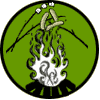%%USERNAME%% %%ACCWORDS%% %%ONOFF%% |
 | No ratings.
Properly using interview techniques is a must have skill set for every job seeker. |
| [Introduction]
‘Skills’ Before You Can Talk about Them, you need to identify them. The essence of an interview has two components that mirror each other; first, the interviewer needs to discover if the applicant possess the skill set that matches the qualifications for the open position, can the applicant demonstrate successful use of those skills and which applicant shows the most promise of being able to help the company reach its goals. The applicant is looking to demonstrate he or she has the skills that match the qualifications of the open position, he or she has used those skills successfully in the past and will be the best candidate to fill the position. On the hiring managers side of the equation he or she successfully reach their goals because of well-developed training programs on how to conduct an interview, structured documentation that guides them through the interview process and finally yet importantly, experience. On the applicant's side of the equation, there are proven procedures you should follow that will help you successfully reach your goal of acing the interview by proving you have the skills needed for the position and the ability to use those skills to help the company reach its goal. Before you can go to an interview and convince anyone you have the skills to help him or her, you must identify your skills, identify results and accomplishments you have had from using those skills and finally, be able to articulate that history professionally and succinctly. The first step in this process is to identify your skills. The best way to do this is to schedule an hour or two; or three or four, whatever it takes to get the job done. You need to be alone with no interruptions and start writing down all the skills you may have. You should think of all the skills you have used on previous jobs, also consider projects and procedures you were involved in with your community as well as in your home. Remember the well-developed skills you often use away from work, are the same core skills you will use at work. When you have written down all the skills you can think of, you should set aside more time (perhaps on another day) to go over the list and start crossing out skills that you do not believe are truly marketable or just do not fit with the type of position you are seeking. Once you have narrowed your skills list down, think about when and how you used those skills. This will require you to write down all the details you can recall, much like when you were writing down all of your skills. However, you will not need to recall and write down all the occasions you may have used the skills, you need only to come up with two or three examples for each skill that would be great testimony in an interview. Make sure every example you use includes a positive result or out come as an ending. Once you have the complete story written down, again, much like the process you used with scaling your skills down to a few very strong one, you will need to scale your stories down to very strong brief examples of how you used your skills as answers to interview questions. Each example should take about 90 seconds or less to convey to the listener. By using this process, you will achieve three positive results; you will build confidence in yourself, develop a powerful way of answering interview questions and, have an advantage over most of the other applicants. Ty Ferrell Sr., arcofsuccess.com |
This item is currently blank.